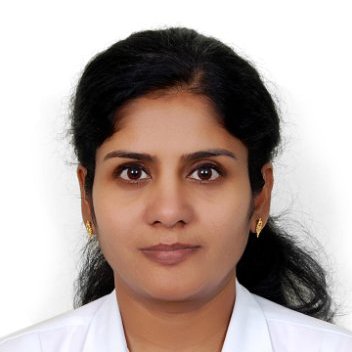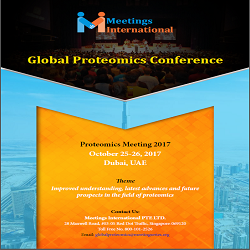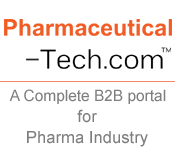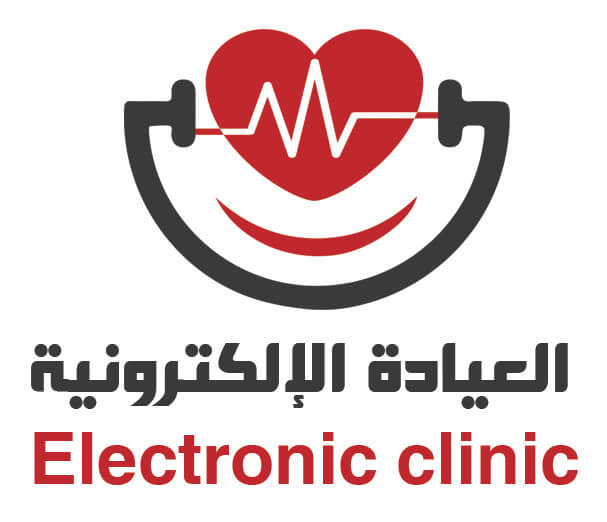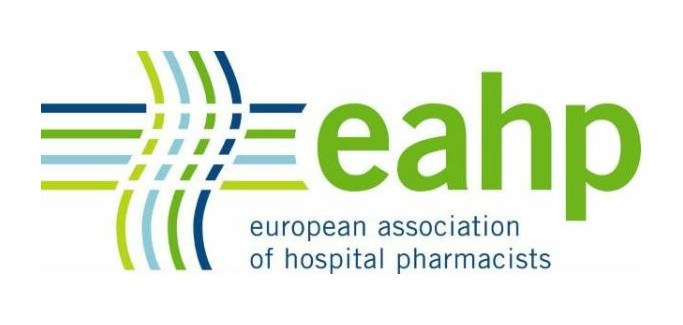
Proteomics Meeting 2017

Theme: Improved Understanding, Latest Advances And Future Prospects In The Field Of Proteomics
Greetings from Proteomics Meeting 2017!
Meetings International absolutely delighted to welcome you to the Global Proteomics Conference which will be held in Dubai, UAE on October 25-26, 2017. With a theme of “Improved Understanding, Latest Advances And Future Prospects In The Field Of Proteomics.”
Meetings International provides a Global Platform for Biochemistry Professionals, Biotech, Medical and Healthcare Professionals to Exchange Ideas, Knowledge and Networking at its 100+ International Conferences.
We are looking forward to provide you with a superb environment in global proteomics to present, discuss and advance your proteomic research. The world class scientific programme will consolidate existing knowledge while at the same time increase your awareness of leading edge and forward looking advances in the field. It also includes previous milestone developments in proteomics, the current state of the art as well as newly arising areas and opportunities and application of proteomics in clinical trials, therapeutic protein production and disease diagnosis, including opportunities for brainstorming and networking to provide solutions in global healthcare.
We look forward to seeing/welcoming you in Proteomics Meeting 2017 for an experience of a lifetime.
Meetings International proudly announces the Global Experts Meeting on Global Proteomics Conference scheduled during October 25-26, 2017 at Dubai, UAE. With a theme of “Improved Understanding, Latest Advances And Future Prospects In The Field Of Proteomics".
Meetings International provides a Global Platform for Chemistry Professionals, Biotech, Medical and Healthcare Professionals to Exchange Ideas, Knowledge and Networking at its 100+ International Conferences.
Proteomics market analysis has its advancement in case of Proteomics equipment’s & technologies this has made enormous progress in past few years, the global proteomics market is valued at USD 12.54 Billion in 2016. This market is expected to grow at a CAGR of 11.7% during the forecast period to reach USD 21.87 Billion by 2021. Proteomics is a branch concerned with applying the techniques of molecular biology, biochemistry, and genetics to analysing the structure, function, and interactions of the proteins produced by the genes of a particular cell, tissue, or organism, with organizing the information in databases, and with applications of the data compare genomics.
Proteomics Meeting 2017 conference will impact an attractive moment to meet people in the research field and therefore it takes a delight in opening a gate to meet the ability in the field, young researchers and potential speakers. The conference also includes essential topics on Proteomics & System Biology, Chemical Proteomics & Profiling Drug Targets, Multiomics for Precision Medicine & Systems Biology, Analytical Proteomics & Genomics, Bioinformatics and Computational Proteomics, Clinical & Translational Proteomics, Innovative Fractionation & Enrichment Techniques, Proteomics Technologies, Biomedical Sciences In Proteomics, Innovative Mass Spectrometry Techniques, Cancer Epigenetics, Metabolic Disorders & Metabolomics, Stem Cell Proteomics, Imaging & Single Cell Proteomics
Attend to gain an unmatched experience in the Biochemistry field.
Meetings International Proteomics Meeting will offer you an unmatched attendee experience. In addition to the many scientific sessions and take-home case study examples, you will leave this event with many other novel development strategies from some of our workshops and symposiums. Engage in dynamic conversation with your industry peers at our multiple networking sessions, and takeaway novel drug development and commercialization strategies, which could speed up time to market and save your organization millions. We hope you will join us in Dubai ,UAE on October to enhance your research capabilities, and increase time to market on therapeutics.
Sincerely,
Operating Committee
CEO and Founder
Meetings International PTE LTD.
Track 1: Proteomics & System Biology
Proteomics is an emerging field that has been highly enabled by the human genome project. Proteins are the products of genes, the machinery of the cells in our bodies. When genes are disrupted, the proteins are also affected. When pathogens infect us, causing disease, proteins play a key role in signaling the presence and ridding us of these invaders. Almost every process that occurs in our cells – from the metabolization of simple sugar to the division of cells – is dependent on proteins for smooth operation. In general, proteomics seeks to detect and quantify as many proteins as possible.
Related Societies and Associations: Proteomics Meeting 2017 | Proteomics Meeting | Proteomics Conference
- Human Proteome Organization
- European Proteomics Association (Eupa)
- Spanish Proteomics Society– (Seprot)
- Netherlands Proteomic Platform (Npp)
- International Plant Proteomics Organization
- Frontiers in Plant Science
- Malaysian Agricultural Proteomics Society
- Chinese Society for Cell Biology
- Genetics Society of China
Track 2: Chemical Proteomics & Profiling Drug Targets
Chemical proteomics is a branch and improving area of chemical biology that finds to design small molecule probes to understand protein function. In the context of natural products, chemical proteomics can be used to identify the protein binding partners or targets of small molecules in live cells. The direct detection of drug-protein interactions in living cells is a major challenge in drug discovery research. Recently, we introduced an approach termed thermal proteome profiling (TPP), which enables the monitoring of changes in protein thermal stability across the proteome using quantitative mass spectrometry.
Related Societies and Associations: Proteomics Meeting 2017 | Proteomics Meeting | Proteomics Conference
- The American Society for Biochemistry and Molecular Biology
- European Federation for Clinical Chemistry and Laboratory Medicine
- Japan Society of Clinical Chemistry (JSCC)
- European Proteomics Association (Eupa)
- Spanish Proteomics Society– (Seprot)
- Netherlands Proteomic Platform (Npp)
Track 3: Multiomics for Precision Medicine
Systematical studies of clinical and pathological mechanisms and identification of optimal therapeutic targets through integrative analysis of multi-omics data from different levels and resources have become an important research direction of precision medicine, which would provide innovative perspectives on disease study and new theoretical basis for early diagnosis, personalized treatment and medicine guide.
Related Societies and Associations: Proteomics Meeting 2017 | Proteomics Meeting | Proteomics Conference
- The Malaysian Society for Molecular Biology and Biotechnology (MSMBB)
- Malaysian Association Of Clinical Biochemist
- Human Proteome Organization
- European Proteomics Association (Eupa)
- Spanish Proteomics Society– (Seprot)
- Netherlands Proteomic Platform (Npp)
Track 4: Analytical Proteomics & Genomics
Proteomics are applied to identify protein modification to determine the difference between a wild type and a genetically modified organism. It is also used to study protein-protein interactions involved in plant defence reactions. Genomics is the new science that deals with the identification of all the sequences in the entire genome and involves in the genetic make-up of organisms.The genome is a complete set of genes inside a cell. Genomics is the study of Genomic sequence is used to study the functions of the numerous genes such as functional genomics and to compare the genes in one organism with the another one i.e, comparative genomics, or to generate the 3-D structure of one or more proteins from each protein family, through this we can identify structural genomics. Analytical methods such as protein identification, analysis of protein primary structure and post-translational modifications by means of the most comprehensive technologies for proteomics, mass spectrometry and bioinformatics.
Related Societies and Associations: Proteomics Meeting 2017 | Proteomics Meeting | Proteomics Conference
- Australian Society Biochemistry and Molecular Biology
- Asia-Pacific Federation for Clinical Biochemistry and Laboratory Medicine(APFCB)
- Belgian Society of Biochemistry and Molecular Biology
- Japan Human Proteome Organisation (Jhupo)
- Italian Proteomic Association (Itpa)
- Portugese Proteomic Association (Rede Procura)
Track 5: Bioinformatics and Computational Proteomics
Bioinformatics is a combination of molecular biology and computer sciences. Bioinformatics is very important for the use of genomic information to understand human diseases and to identify new ways for gene-based drug discovery and development. Computational Proteomics is about the computational methods, algorithms, databases and methodologies used to process, manage, analyze and interpret the data produced in proteomics experiments. As in many scientific disciplines, the final goal of Computational Proteomics is to infer knowledge models (e.g. verify a hypothesis or identify proteins involved in a disease) from the inspection of biological samples.
Related Societies and Associations: Proteomics Meeting 2017 | Proteomics Meeting | Proteomics Conference
- Iranian Proteomic Society
- Taiwan Proteomic Society (Tps)
- Austrian Proteomics Society
- European Proteomics Association
- World Association for Chinese Biomedical Engineers
- Chinese-American Chemical Society
- Proteomics Society, India
- Turkish Proteomics Association
Track 6: Clinical & Translational Proteomics
Clinical Proteomics includes all aspects of translational proteomics. As the research in molecular medicine field has moved beyond genomics to proteomics. Clinical proteomics studies can help researcher understand the characterization of cellular network, impact of the disease and its therapy. Over the years the field of proteomics has expanded with the development of mass-spectrometry to a broad and varied research areas of science. Incredible progress in instrumentation of mass-spectrometry has led to the sensitivity, accuracy and quick analysis and identification of proteins. With the advancement in science qualitative and quantitative differences in protein profiles of particular diseased vs. normal can be analyzed. Translational Proteomics involves areas of human proteomics using multi-disciplinary approaches to untangle complex disease processes.
Related Societies and Associations: Proteomics Meeting 2017 | Proteomics Meeting | Proteomics Conference
- The Hong Kong Medical Association
- The Chinese Society of Biochemistry & Molecular Biology
- Chinese Chemical Society
- Chinese Society for Cell Biology
- Genetics Society of China
- Biochemical Society
- British Society for Proteome Research
- Swedish Proteomics Society
Track 7: Innovative Fractionation & Enrichment Techniques
Phosphoproteins are often present in quite low abundance and tend to co-exist with their unphosphorylated isoform within the cell. To make their identification more practicable, the use of enrichment protocols is often required. The enrichment strategies can be performed either at the level of phosphoproteins or at the level of phosphopeptides. Both approaches have their advantages and disadvantages. Most enriching strategies are based on chemical modifications, affinity chromatography to capture peptides and proteins containing negatively charged phosphate groups onto a positively charged matrix, or immunoprecipitation by phospho-specific antibodies.
Related Societies and Associations: Proteomics Meeting 2017 | Proteomics Meeting | Proteomics Conference
- The Malaysian Society for Molecular Biology and Biotechnology (MSMBB)
- Malaysian Association Of Clinical Biochemist
- Human Proteome Organization
- European Proteomics Association (Eupa)
- Spanish Proteomics Society– (Seprot)
- Netherlands Proteomic Platform (Npp)
Track 8: Proteomics Technologies
The origin of proteomics technologies for global detection and quantitation of proteins creates new opportunities and challenges for those seeking to gain greater understanding of diseases. The high passing proteomics technologies are combining with the advanced bioinformatics and are extensively used to identify the molecular signatures of diseases based on protein pathways and signaling cascades. The mass spectrometry plays a vital role in the proteomics and has to become an indispensable tool for the molecular and cellular biology. While the potential is high, many challenges and issues are remain to be solved, such as mining low abundant proteins and integration of proteomics with genomics and metabolomics data. Even so, proteomics is the base for constructing and extracting useful knowledge to biomedical research.
Related Societies and Associations: Proteomics Meeting 2017 | Proteomics Meeting | Proteomics Conference
- Iranian Proteomic Society
- Taiwan Proteomic Society (Tps)
- Austrian Proteomics Society
- European Proteomics Association
- World Association for Chinese Biomedical Engineers
- Chinese-American Chemical Society
- British Society for Proteome Research
- Swedish Proteomics Society
- The Serbian Proteomics Association
Track 9: Biomedical Sciences In Proteomics
Biomedical research is generally known as medical research. And it is the basic research, applied research, or translational research conducted to aid and supports the development of knowledge in the field of medicine.Proteomics is used in many areas of research such as discovery of markers for diagnosis and vaccine candidates, understanding pathogenic mechanisms, and also in the study of expression patterns at different time points and also in response to different stimuli, and in elucidating the functional protein networks. Proteomics analysis involves in the sample preparation, protein separation, and protein identification.
Related Societies and Associations: Proteomics Meeting 2017 | Proteomics Meeting | Proteomics Conference
- Iranian Proteomic Society
- Taiwan Proteomic Society (Tps)
- Austrian Proteomics Society
- European Proteomics Association
- World Association for Chinese Biomedical Engineers
- Chinese-American Chemical Society
- The Hong Kong Medical Association
Track 10: Innovative Mass Spectrometry Techniques
Mass spectrometers can acquire qualitative and quantitative information on a large scale to study protein expression, protein interactions and modifications, in complexes, organelles, cells and tissues. The currently available technological platforms and approaches offer a wide selection for proteomics experiments from low to high throughput, from shotgun discovery to targeted validation.
Related Societies and Associations: Proteomics Meeting 2017 | Proteomics Meeting | Proteomics Conference
- The Malaysian Society for Molecular Biology and Biotechnology (MSMBB)
- Malaysian Association Of Clinical Biochemist
- Human Proteome Organization
- Japan Human Proteome Organisation (Jhupo)
- Italian Proteomic Association (Itpa)
- Portugese Proteomic Association (Rede Procura)
- Iranian Proteomic Society
Track 11: Cancer Epigenetics
Epigenetics, the study of potentially heritable changes in the gene expression (active versus inactive genes) and that does not involve the changes to the underlying DNA sequence - a change in phenotype without a change in genotype and which in turn affects how cells read the genes. And also epigenetic change can have more damaging effects that can results in diseases like cancer. At least three systems including DNA methylation, histone modification and non-coding RNA (ncRNA) and associated gene silencing are currently considered to initiate and sustain epigenetic change. Cancer epigenetics is the study of somatically heritable changes to molecular processes that influence the flow of information between the DNA of cancer cells and their gene expression patterns. the technology most frequently used for the analysis of clinical tissue samples is the two-dimensional gel electrophoresis (2DE) are combined with the matrix assisted laser desorption/ionization time of flight mass spectrometry (MALDI-TOF MS).
Related Societies and Associations: Proteomics Meeting 2017 | Proteomics Meeting | Proteomics Conference
- European Proteomics Association
- World Association for Chinese Biomedical Engineers
- Chinese-American Chemical Society
- The Hong Kong Medical Association
- The Chinese Society of Biochemistry & Molecular Biology
- Chinese Chemical Society
Track 12: Metabolic Disorders & Metabolomics
When abnormal chemical reactions occurs in your body and disrupt the process it is known as metabolic disorder. There are different groups of disorders. Some affect the breakdown of amino acids, carbohydrates, or lipids. Another group, mitochondrial diseases, affects the parts of the cells that produce the energy. Metabolomics ,it is the study of low molecular weight molecules or metabolites are found within cells and biological systems. The metabolome is a measure of the inputs and outputs of biological pathways and it is often considered to more representative of the functional state of a cell than other ‘omics measures such as genomics or proteomics. In addition, many metabolites are conserved across the various animal species, facilitating the extrapolation of research findings in the laboratory animals to humans. Common technologies are used for measuring the metabolome include the mass spectrometry (MS) and also nuclear magnetic resonance spectroscopy (NMR), which can detect the hundreds to thousands of unique chemical entities (UCE).
Related Societies and Associations: Proteomics Meeting 2017 | Proteomics Meeting | Proteomics Conference
- Australian Society Biochemistry and Molecular Biology
- Asia-Pacific Federation for Clinical Biochemistry and Laboratory Medicine(APFCB)
- Belgian Society of Biochemistry and Molecular Biology
- Iranian Proteomic Society
- Taiwan Proteomic Society (Tps)
- Austrian Proteomics Society
Track 12: Stem Cell Proteomics
Proteomics it is a series of technology and platforms driven by advancements in mass spectrometry and bioinformatics that encompass protein identification, the relative quantitation of proteins and peptides, their subcellular localization, and studies of post-translational modifications and protein-protein interactions. Stem cell biology has been influenced by these approaches and has evolved in the post-genomics era. Implementation of proteomic applications brought many changes in stem cell biology.
Related Societies and Associations: Proteomics Meeting 2017 | Proteomics Meeting | Proteomics Conference
- The Malaysian Society for Molecular Biology and Biotechnology (MSMBB)
- Malaysian Association Of Clinical Biochemist
- Human Proteome Organization
- European Proteomics Association (Eupa)
- Spanish Proteomics Society– (Seprot)
- Netherlands Proteomic Platform (Npp)
- Japan Human Proteome Organisation (Jhupo)
Track 14: Imaging & Single Cell Proteomics
Single-cell genomics is advancing rapidly and it is generating many new insights into complex biological systems, ranging from the diversity of microbial ecosystems to the genomics of human cancer. It focus on the technical challenges of making measurements that start from a single molecule of DNA, and then explore how some of these recent methodological advancements have enabled the discovery of unexpected new biology. Methods for the genomic analysis at the single-cell resolution enable the new understanding of the complex biological phenomena. Single-cell techniques are ranging from flow cytometry and microfluidics to PCR and sequencing these are used to understand the cellular composition of complex tissues, it helps to find new microbial species and perform genome-wide haplotyping.
Related Societies and Associations: Proteomics Meeting 2017 | Proteomics Meeting | Proteomics Conference
- Human Proteome Organization
- European Proteomics Association (Eupa)
- Spanish Proteomics Society– (Seprot)
- Netherlands Proteomic Platform (Npp)
- Japan Human Proteome Organisation (Jhupo)
- Italian Proteomic Association (Itpa)
- Portugese Proteomic Association (Rede Procura)
Proteomics Meeting 2017,
The global proteomics market is valued at USD 12.54 Billion in 2016. This market is expected to grow at a CAGR of 11.7% during the forecast period to reach USD 21.87 Billion by 2021. The global market exhibits potential for significant growth and is propelled by the increasing need for personalized medicine, R&D expenditure, technological advancements, and increased funding for proteomics projects. In this report, the global proteomics market is segmented on the basis of instrumentation technology, application, reagent, services & software, and region. On the basis of application, the market is segmented into drug discovery, clinical diagnostics, and other applications. The clinical diagnostics segment accounted for the largest share of the market in 2015. This is attributed to the increased understanding of the relevance of investigating and understanding patterns of protein expression for diseases and drug development.
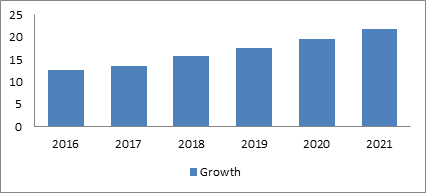
The Asian proteomics market is driven by the increase in the number of diseases and the population suffering from these diseases. The market value of the proteomics market was $1.42 billion in 2012, and is expected to reach $4.16 billion by 2018, at a CAGR of 19.8%.
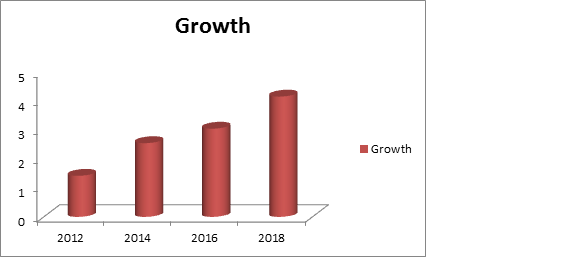
Source: http://www.micromarketmonitor.com/market/asia-proteomics-9684740373.html
The large share in the global proteomics attributed to presence of developed research infrastructure in the U.S. & Canada, increasing acceptance of personalized medicine, and growing adoption of technologically advanced products in this region. The Asia-Pacific region is expected to register the highest CAGR, due to the growth in research activities and increasing investments by leading players and respective government agencies in the region.
About Dubai :
Dubai is the most populous city in the United Arab Emirates (UAE). It is located on the southeast coast of the Persian Gulf and is one of the seven emirates that make up the country. The city of Dubai is located on the emirate's northern coastline and heads up the Dubai-Sharjah-Ajman metropolitan area. Dubai is to host World Expo 2020. It provides opportunities for global participation and robust development in the field of biochemistry and proteomics, global biotechnology and other related sectors as it strives to be the preferred destination for biotechnology and biochemistry investments. Dubai delivers a world class education and also immense job opportunities for well-educated students.
The global proteomics market was valued at nearly $5.1 billion in 2014 and the market was valued at over USD 11.8 billion in 2015. The global market of proteomics compound annual growth rate (CAGR) of 18.0% to reach a forecast value of $11.6 billion by 2019.
The global protein-labeling market reached $2.2 billion in 2016. The market should reach $4.2 billion by 2021, growing at a compound annual growth rate (CAGR) of 14.1% from 2016 to 2021.
The global market for sample preparation in genomics, proteomics and epigenomics reached $5.2 billion in 2015. The market should reach $5.6 billion in 2016 and $7.7 billion by 2021, growing at a compound annual growth rate (CAGR) of 6.5% from 2016 to 2021.
Target Audience
- Proteomics Instrumentation Technology Product Manufacturers
- Researchers and Scientists
- Proteomics Industry Consulting Firms
- Proteomics Research and Development (R&D) Companies
- Healthcare Institutions
- Research Institutes
- Market Research and Consulting Firms
TOP SOCIETIES & ASSOCIATIONS ASSOCIATED WITH RESEARCH IN THE FIELD OF PROTEOMICS
Societies :
- The American Society for Biochemistry and Molecular Biology
- European Federation for Clinical Chemistry and Laboratory Medicine
- Japan Society of Clinical Chemistry (JSCC)
- British Society for Proteome Research
- Australian Society Biochemistry and Molecular Biology
- Asia-Pacific Federation for Clinical Biochemistry and Laboratory Medicine(APFCB)
- Belgian Society of Biochemistry and Molecular Biology
- Proteomics Society, India
- Swedish Proteomics Society
- International Federation of Clinical Chemistry and Laboratory Medicine
- Spanish Society for Clinical Biochemistry and Molecular Pathology
- The Malaysian Society for Biochemistry & Molecular Biology (MSBMB)
- The Malaysian Society for Molecular Biology and Biotechnology (MSMBB)
- Malaysian Association Of Clinical Biochemist
- Malaysian Agricultural Proteomics Society
Associations :
- Human Proteome Organization
- European Proteomics Association (Eupa)
- Spanish Proteomics Society– (Seprot)
- Netherlands Proteomic Platform (Npp)
- Japan Human Proteome Organisation (Jhupo)
- Italian Proteomic Association (Itpa)
- Portugese Proteomic Association (Rede Procura)
- Turkish Proteomics Association
- Iranian Proteomic Society
- Taiwan Proteomic Society (Tps)
- Austrian Proteomics Society
- European Proteomics Association
- World Association for Chinese Biomedical Engineers
- Chinese-American Chemical Society
- The Hong Kong Medical Association
- The Chinese Society of Biochemistry & Molecular Biology
- Chinese Chemical Society
- Chinese Society for Cell Biology
- Genetics Society of China
- Biochemical Society
- International Plant Proteomics Organization
- Frontiers in Plant Science
- Proteomics & System Biology
- Chemical Proteomics & Profiling Drug Targets
- Multiomics for Precision Medicine & Systems Biology
- Analytical Proteomics & Genomics
- Bioinformatics and Computational Proteomics
- Clinical & Translational Proteomics
- Innovative Fractionation & Enrichment Techniques
- Proteomics Technologies
- Biomedical Sciences In Proteomics
- Innovative Mass Spectrometry Techniques
- Cancer Epigenetics
- Metabolic Disorders & Metabolomics
- Stem Cell Proteomics
- Imaging & Single Cell Proteomics
- Biochemistry & Molecular Biology Journal
- Biomarkers Journal
- Journal of RNAi and Gene Silencing
9 Organizing Committee Members
9 Renowned Speakers
Anas M. Abdel Rahman
King Faisal Specialist Hospital and Research Center, Alfaisal University
Saudi Arabia
Martin P. Hornshaw
Director, Scientific Marketing
Metabolon, Inc.
USA
Abdellah Salhi
University of Essex
UK
Mohammed A. Alaidarous
Majmaah University
Saudi Arabia
Rashmi Tomar Rana1
All India Institute of Medical Sciences
India
Minnie Jacob
Al- Faisal University, Riyadh,
Saudi Arabia
Vidhya Sunil
Zayed University, Dubai
UAE
Saadia Azeem
Pakistan
Vijayakumar Kaliappilai
M. Kumarasamy College of Engineering, Tamilnadu
India





















